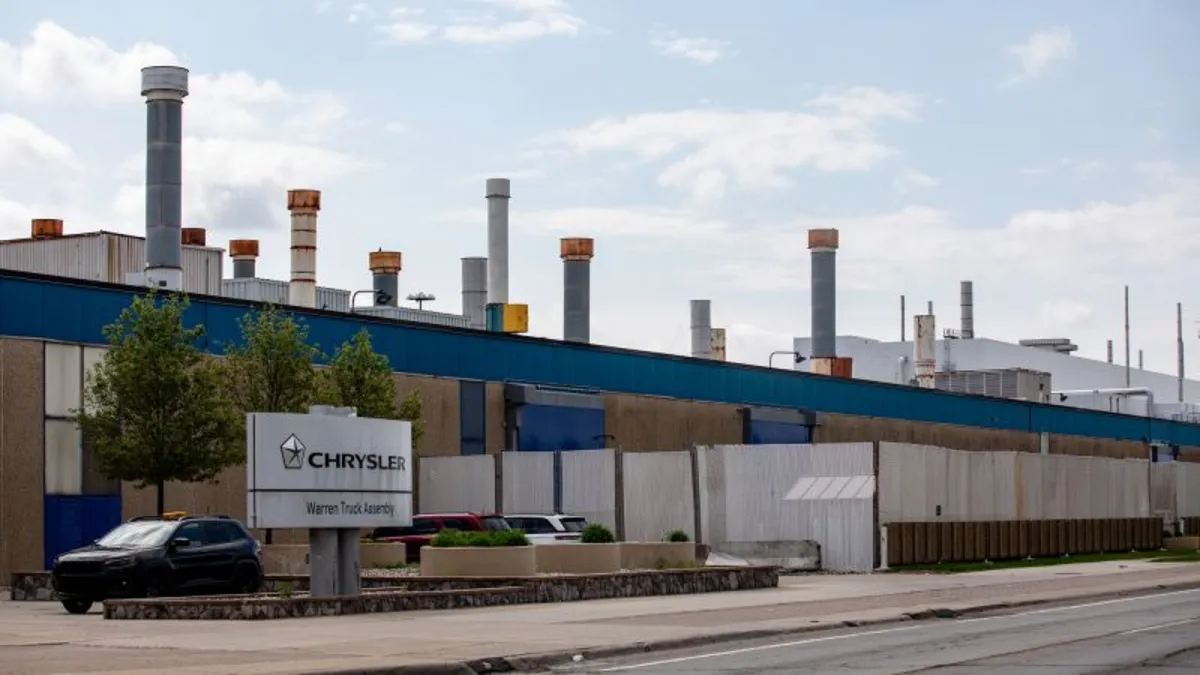
In a significant move, Stellantis has announced the temporary suspension of production at several of its auto assembly plants located in Canada and Mexico. This decision, attributed to newly implemented tariffs, will unfortunately lead to the temporary layoff of approximately 900 hourly workers in the United States. These layoffs affect employees who are engaged in the production of powertrains and stampings, vital components that supply the impacted Canadian and Mexican facilities.
The layoffs will primarily impact workers from five different plants situated in the Midwest. These include the Warren Stamping and Sterling Stamping plants in Michigan, alongside the Indiana Transmission Plant, Kokomo Transmission Plant, and Kokomo Casting Plant, all located in Kokomo, Indiana. Fortunately for most of these workers, immediate pay loss is not anticipated due to the protections granted under their union contracts. However, there is a potential risk of wage loss if the shutdowns at the Canadian and Mexican plants extend over a longer period.
The Windsor assembly plant in Ontario, which is responsible for producing the Chrysler Pacifica, Chrysler Voyager, and Dodge Charger Daytona, will cease operations for a two-week period starting Monday. This facility employs a workforce of 4,500 hourly employees. Concurrently, the assembly plant in Toluca, Mexico, which manufactures the Jeep Compass and electric Wagoneer S, will halt production for the remainder of April, impacting 2,400 hourly workers.
In a memo to employees, Stellantis’ Chief Operating Officer for the Americas, Antonio Filosa, emphasized the company's commitment to evaluating the medium- and long-term repercussions of these tariffs on their operations. He stated, “These are actions that we do not take lightly, but they are necessary given the current market dynamics.” Filosa reassured employees of Stellantis' engagement with key stakeholders, including government leaders, unions, suppliers, and dealers across the U.S., Canada, and Mexico, to navigate through these changes.
The announcement of layoffs has drawn sharp criticism from the United Auto Workers (UAW) union. UAW President Sean Fain condemned Stellantis for what he described as “playing games with workers’ lives.” He labeled the layoffs as an unnecessary decision by the company, indicative of the flaws in the current trade system. Fain argued that companies like Stellantis are using workers as “collateral damage” for the consequences of management's poor decisions.
Despite previous criticisms of former President Trump, Fain and the UAW have expressed support for his tariff policies, believing that they could lead to a shift in auto production back to U.S. plants from facilities in Mexico and other countries. However, Fain acknowledged that such a transition would require significant time, potentially spanning months or even years.
In Canada, the union representing autoworkers, Unifor, has voiced its discontent regarding Stellantis' decision. Unifor President Lana Payne remarked that the U.S. tariffs would have an immediate negative impact on autoworkers. She pointed out that the layoffs were announced even before the auto tariffs came into effect, emphasizing the interconnected nature of the North American production system and the potential consequences for workers.
As the situation develops, the automotive industry will continue to monitor the implications of these tariffs and their effects on production and employment across North America.